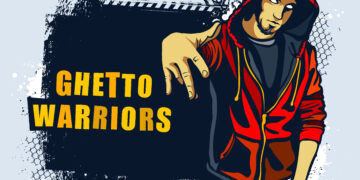The Magic of a Single Clue
There’s something strangely addictive about opening Wordle each morning. For many players, it’s a ritual as comforting as coffee—five letters, six tries, and the small thrill of keeping a streak alive. But even the best players hit a wall now and then. That’s when a single, well-crafted Wordle hint can make all the difference.
Unlike flat-out spoilers, a carefully given clue doesn’t ruin the fun. Instead, it sparks your brain, nudges you in the right direction, and keeps you engaged in the challenge. For daily solvers who treat their Wordle streak like gold, that one guiding hint can be the thin line between victory and a frustrating loss.
Why Players Rely on Subtle Hints
Part of the magic of Wordle is the tension between risk and reward. You’re limited to only six guesses, which means mistakes cost you dearly. A Wordle hint offers mental breathing room. Rather than guessing in the dark, you can narrow your focus, test smarter possibilities, and keep your streak intact without giving up that satisfying “Aha!” moment.
Hints work because they target the puzzle’s structure. You might get a clue about vowel placement, a rare consonant, or a word theme without being handed the answer. It’s strategic nudging, not spoon-feeding—perfect for players who thrive on solving things themselves.
The Hint for Today’s Puzzle
If you’re staring at a grid of yellow and gray squares this morning, today’s subtle Wordle hint is this:
“The word has two vowels, and one of them appears more than once.”
That’s enough to adjust your thinking. Suddenly your mind starts running through words with doubled vowels, or words that repeat an “A” or “E.” Without knowing the actual solution, you’ve just cut down dozens of possible guesses into a much smaller pool. This keeps the heart of the puzzle alive while steering you toward success.
Making the Most of Your Hint
A Wordle hint is most effective when you don’t rush. Let it simmer. Think about your previous guesses and what you now know. Start with eliminating impossible letters. Then, test combinations that match the new clue’s pattern.
For example, if you know the word has a repeated vowel, consider starter words like “APPLE” or “EAGER” to test placement efficiently. Avoid random guesses just to burn through turns—treat each guess like a stepping stone, inching you toward the right answer.
Instead of trying every word that fits, look for the ones that give you the biggest information boost. This way, you’re solving with intention rather than luck.

Protecting Your Wordle Streak
Players who’ve kept their streaks going for months or even years know the importance of discipline. A streak is more than just a number—it’s a record of your persistence, skill, and daily habit.
To safeguard it, try using:
- Rotating strong openers: Keeps your letter coverage fresh each day.
- Letter elimination strategy: Focus some guesses on ruling out letters even if they’re not in the right spot.
- Mindful pacing: Take breaks between guesses to clear your head and see new patterns.
These tactics, combined with a well-timed Wordle hint, can keep your winning history intact for the long haul.
Hints vs. Spoilers
Some purists argue that using any outside help is “cheating,” but most experienced players see a difference. A hint is selective—it gives you a push but keeps the puzzle intact. A spoiler removes the challenge completely and turns Wordle into a box you simply check off.
The important thing is intent. Hints are there to help when you’re truly stuck, not to replace the work of solving. They preserve the satisfaction of discovery while giving you a fighting chance when the clock is ticking or your guesses are dwindling.
Reading the Game Like a Pro
Beyond hints, the best Wordle players read patterns like a language. They notice letter frequency, common starting pairs, and the likelihood of tricky consonants such as Q, Z, or X. They know when to guess boldly and when to play it safe.
A Wordle hint should be just one part of your toolbox. The other part is building your own solving instincts over time. As you play more, you’ll start picking up on shared traits between answers—a skill that makes each hint far more powerful.
The Human Side of the Game
Part of what keeps Wordle interesting is the shared experience. Offices, friends, and families text their scores, celebrate narrow wins, and groan over near misses. A hint isn’t just about saving your own streak—it’s a small connection in the bigger Wordle community.
Sometimes sharing a subtle clue with someone else becomes part of the fun. You’re helping without handing over the answer, and in doing so, you keep the shared excitement alive.
When to Use a Hint and When to Trust Yourself
A good rule of thumb: try at least half your guesses before looking for help. The first few turns are crucial for gathering raw data about letter positions. Once you’ve worked through your starter words and logical guesses, that’s the perfect moment to use a Wordle hint.
By that stage, the hint can be the exact missing piece—guiding you toward letters or patterns you hadn’t considered without interrupting your solving rhythm.
The Psychology Behind a Good Hint
Cognitive science shows that gentle prompts can improve problem-solving without removing the challenge altogether. The brain thrives on resolving uncertainty, and a well-timed clue sharpens focus rather than diluting it. That’s why a Wordle hint feels so satisfying—you still solve, but with the reassurance that you’re not wandering blind forever.
Hints act like mental catalysts. They reinvigorate your thinking and help bypass roadblocks, especially when you’ve been staring too long at the same letters without progress.
Building Better Habits for Long-Term Play
If Wordle is part of your daily life, you can make hints even more useful by pairing them with thoughtful habits:
- Review past puzzles: Notice common word patterns and repeated consonants.
- Diversify starting words: Avoid sticking to the exact same opener every day.
- Learn rare letter uses: Understanding how letters like Y, X, or J show up can save you later guesses.
With these practices, a Wordle hint becomes less about rescue and more about optimization—helping a good solver become a great one.
: What exactly is a Wordle hint?
A Wordle hint is a small piece of information designed to give you a push toward the right answer without revealing the entire solution. It might highlight a letter’s position, note how many vowels are in the word, or mention a particular theme related to the day’s puzzle. The idea is to help you move forward without taking away the satisfaction of solving the puzzle yourself.
Why do players look for hints instead of the full answer?
Most Wordle enthusiasts value the challenge. The thrill comes from figuring it out on your own, not from being told the solution. A hint keeps the game challenging while offering guidance, especially when you’re running out of guesses or stuck on an unusual letter combination.
Will using a Wordle hint ruin the fun?
Not if you use it the right way. A good hint gives you just enough to see the puzzle in a new light. It’s like a friend nudging you in the right direction rather than handing over the answer. This keeps your brain engaged and the game’s fun intact.
Can a hint really save my winning streak?
Yes, absolutely. Many players have streaks lasting months or even a year. One unlucky puzzle can break that chain. A single Wordle hint can help you navigate a tricky word and protect all the effort you’ve put into your history of wins.
Are hints useful for tricky or rare words?
That’s when hints shine the brightest. English has some tricky letter combinations and words you might not guess on your own—especially those with double letters or unusual vowel placement. A well-crafted hint gives you insight into these rare cases without giving away the full answer.
What’s the best way to apply a Wordle hint?
Pause. Look at your grid and think about what the hint is really telling you. If it says there’s a double vowel, try to recall common words with repeating vowels. If it tells you where a consonant might be, narrow your guesses to test that position. The key is to use the hint strategically, not randomly.
Should I use hints every day?
Not necessarily. The more you rely on hints, the less you’ll develop your own solving strategies. Think of hints as a safety net, not a daily requirement. Use them when you’re stuck, tired, or when the puzzle’s difficulty spikes beyond your usual comfort zone.
How do hints differ from spoilers?
A spoiler skips the entire challenge by handing you the answer on a plate. A Wordle hint, on the other hand, still leaves you to figure things out. It’s like the difference between giving someone the punchline versus letting them discover it themselves.
Where can I get reliable daily Wordle hints?
Daily hints often come from Wordle communities, puzzle blogs, or curated websites where the goal is to support—not spoil—the game. Good hint sources use thoughtful, non-revealing clues that respect the spirit of the puzzle.
Can I share hints with friends without spoiling?
Yes, and it can make the experience more fun. Sharing a Wordle hint that’s subtle and clever can spark conversation. The only rule? Make sure your hint doesn’t outright give away the answer. The joy is in the shared solving journey.
Do professional puzzle players use hints?
Even experienced solvers use hints when the stakes are high—like protecting a long streak or tackling an especially stubborn word. The difference is that experts know how to maximize the value of a hint without turning it into a crutch.
Is it better to take a hint early or wait until I’m stuck?
It’s usually better to wait until you’ve used at least three guesses. By this point, you’ll have gathered enough information from your own plays to make the hint more effective. Early hints can sometimes shorten the fun, while a later hint can help you close the gap when the remaining guesses are precious.
How These Questions Connect to the Wordle Experience
Players naturally ask these questions because Wordle blends daily entertainment with light brain exercise. A Wordle hint isn’t just about solving—it’s about balance. It gives confidence without stealing challenge, and that’s what keeps people coming back day after day.
Hints touch on psychology, strategy, and a little human pride. Whether you’re a casual player enjoying a puzzle with coffee or a competitive solver chasing a hundred-plus-day streak, these answers show how a small nudge at the right time can make Wordle both challenging and rewarding.
And that’s the magic—you still get the victory, you still feel ownership over your solution, and you still enjoy that little flash of triumph when all the tiles turn green.
Closing Thoughts
At its heart, Wordle is more than a puzzle. It’s a moment of play, a shared ritual, and for many, a friendly test of linguistic skill. A hint isn’t about doing the work for you—it’s about keeping the game alive, enjoyable, and streak-saving when you need it most.
So next time you’re stuck with only two guesses left, remember that the right Wordle hint can be just enough to steer you toward that satisfying green row without robbing you of the victory you earned. And tomorrow? You’ll start fresh, ready for the challenge once again
References
While Wordle is a simple game, research into puzzle-solving techniques, word frequency, and player psychology comes from reliable and human-read sources:
Informal Community Forums and Player Discussions – Observations from active Wordle players about effective strategies and their personal experiences using hints..
New York Times Games – Wordle Overview – Information about the game’s rules, streak tracking, and daily challenges.
Oxford English Dictionary & Collins Scrabble Words – Language references for common and rare letter usage in English.
American Psychological Association – Problem Solving Insights – Research on how hints and partial prompts boost problem-solving efficiency.
Cambridge University Press Linguistics Studies – Data on English letter frequency and pattern recognition in word games.
FAQs
Q: What makes a Wordle hint different from a spoiler?
A spoiler gives you the complete answer, while a hint gives you partial, strategic information to help you solve it yourself.
Q: How often should I use Wordle hints?
Use them sparingly—only when you feel truly stuck after using a few guesses on your own.
Q: Can hints work for difficult or rare words?
Yes, especially for uncommon letter combinations. A good hint can highlight unique features without giving the word away.
Q: Do hints reduce the fun of Wordle?
Not if they’re subtle. A hint can keep the challenge alive while preventing unnecessary frustration.
Q: What’s the best way to apply a Wordle hint?
Pause, look at your current grid, and think about how the hint changes your remaining options before making your next guess.





















































